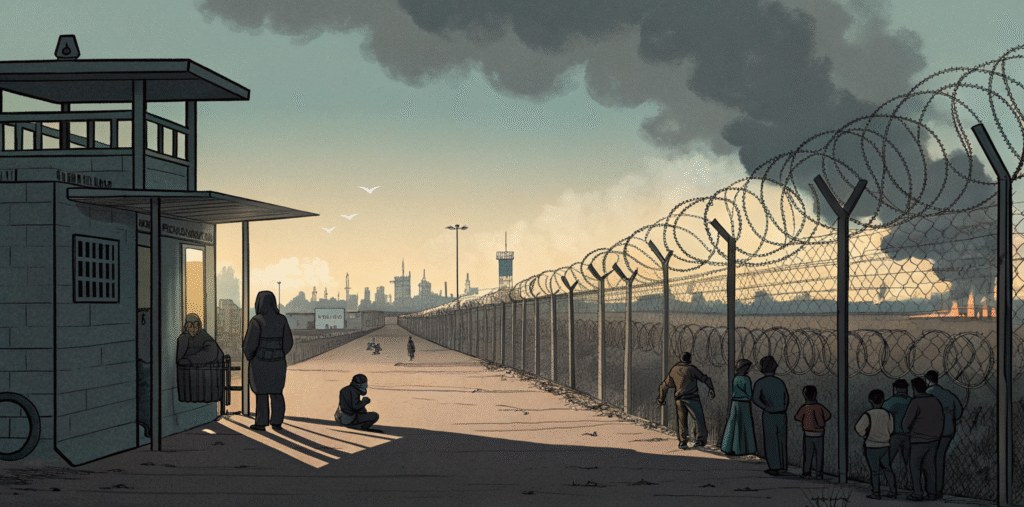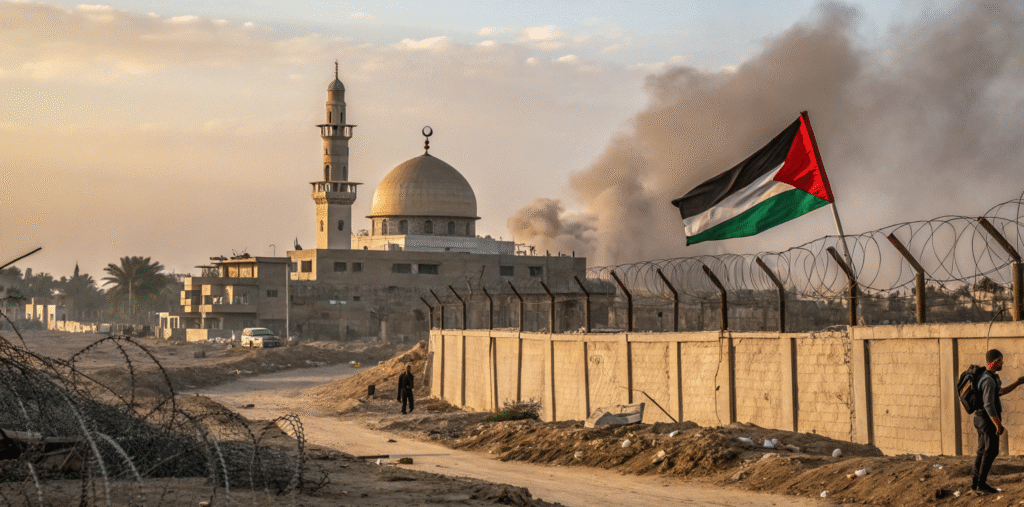
Published: August 2025
Category: Geopolitics | Human Rights | Middle East
Tags: Egypt, Gaza, Rafah, Genocide, Siege, Humanitarian Crisis
Introduction
In the shadow of Israel’s brutal military campaign against Gaza since October 7, 2023, the southern border city of Rafah emerged as a final lifeline — and then a deadly trap. Long viewed as Gaza’s gateway to the outside world, the Rafah Crossing with Egypt could have been a channel of hope, relief, and escape. Instead, it became a silent accomplice in a siege that has killed over 60,000 Palestinians, the majority of them women and children.
This is the story of Egypt’s betrayal, the political calculations behind the blockade, and how silence became complicity.
Rafah: Gaza’s Only Non-Israeli Exit
The Rafah Crossing is Gaza’s only border not directly controlled by Israel. In theory, it is a sovereign Egyptian gate. In practice, it has been tightly shut for most of the war. Despite unprecedented levels of destruction — including attacks on schools, refugee camps, and hospitals — Egypt refused to open Rafah fully to allow mass evacuation, critical medical aid, or sustained humanitarian relief.
“Egypt has effectively become a co-jailer of Gaza.”
— Middle East Institute, 2024
Why Egypt Closed the Door
Several key factors shaped Egypt’s inaction:
1. Security Fears
President Abdel Fattah el-Sisi has claimed that opening Rafah would risk importing Hamas fighters or destabilizing Sinai, where Egyptian forces already battle insurgents.
2. Geopolitical Calculations
Egypt is a key U.S. ally and recipient of over $1.3 billion in annual military aid. Its government has taken care not to oppose Washington’s unconditional support of Israel — even as Gaza turned into rubble.
3. Fear of Permanent Displacement
Cairo has long feared that opening the border would result in permanent ethnic cleansing — with Palestinians forced out and never allowed to return, making Egypt the new “home” of the displaced. Ironically, this has led Egypt to maintain a deadly status quo, blocking safe passage even for medical evacuees.
Documented Impact of the Closure
According to Physicians for Human Rights Israel and Al Mezan Center for Human Rights, Egypt’s closure has led to:
- Thousands of preventable deaths due to delayed medical evacuations
- Severe shortages of fuel, surgical equipment, and clean water
- Aid convoys stacked for weeks at the border
- At least 15,000 children injured or orphaned without access to treatment
In May 2024, an Israeli airstrike hit the Rafah crossing itself, killing at least 25 Palestinians — even then, Egypt kept the gate shut for weeks.
International Criticism Mounts
- The UN Special Rapporteur on Human Rights called Egypt’s actions “a violation of international humanitarian obligations.”
- Human Rights Watch demanded that Egypt stop weaponizing border access, especially after mass graves were discovered near Rafah.
- In South Africa’s ICJ case against Israel, Egypt was mentioned as a regional player failing to protect civilians.
The People Speak

Despite media censorship, Egyptians themselves have protested in Cairo, chanting:
“Open Rafah! Gaza is bleeding!”
Activists and journalists have also faced arrests and online crackdowns for criticizing the government’s policy.
Conclusion: A Shared Guilt
While the world rightly condemns Israel for its campaign of ethnic cleansing, Egypt’s passive role in maintaining the siege cannot be ignored. Closing Rafah didn’t just trap Palestinians — it helped starve them, isolate them, and ensure that their cries for help remained unheard.
In the history of genocide, there are those who kill — and those who enable the killing. The Rafah Betrayal will be remembered as both a geopolitical failure and a moral disgrace.
Resources & References:
- Middle East Institute – Rafah Closure Analysis
- Al Mezan Center for Human Rights
- Physicians for Human Rights
- Human Rights Watch – Egypt Gaza Report
- UN OCHA Gaza Humanitarian Data
Keywords:
Rafah Crossing, Egypt Gaza Border, Gaza Genocide, Egypt complicity Gaza, Rafah humanitarian crisis, Abdel Fattah el-Sisi Gaza, Rafah closed, Gaza blockade, Egypt Israel US
